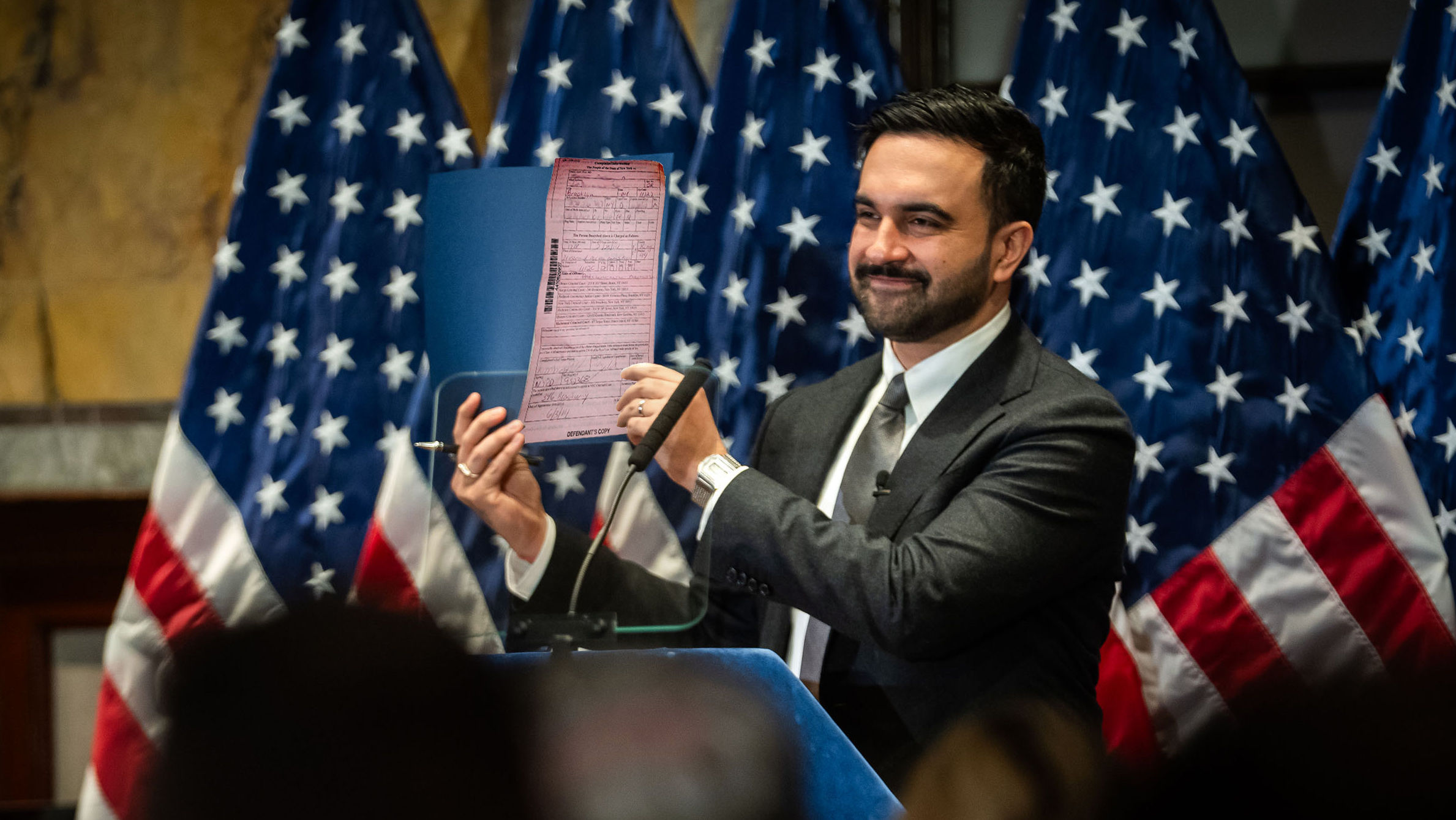
With its report released the day before, there wasn't a lot of news to be found at yesterday's meeting of the Congestion Mitigation Commission. There was, however, some good political theater and, with the deadline to produce a recommendation approaching, influential commissioners began staking out their positions.
The day's agenda was to discuss the four alternative traffic mitigation plans presented in the report. Assemblyman Richard Brodsky, as usual, had questions. Would the alternative plans include an exemption from environmental review or a residential parking permit program? Do they address government parking placards or include commitments to have transit improvements in place before the pricing system is turned on?
The back and forth went on for a while, Brodsky suggesting through his questions that none of the traffic mitigation plans were detailed enough for responsible legislators to take a vote.
While the tone of the discussion was spirited and collegial, at a certain point, Shaw, it seemed, had enough of Brodsky's nitpicking. "Look," he said:
There are only two ways to reduce congestion. Less people come to work or you improve mass transit. We don't want less people to come to work and the only way to improve mass transit is with money and resources which we don't have. The City and State are, relatively speaking, going to be relatively broke as we put together the next MTA capital plan. This congestion pricing plan is one of the best hopes for this town to fund the next MTA capital plan.
In other words, as James Carville might put it, "It's about the MTA capital plan, stupid."
Teamsters president Gary LaBarbera is the one commissioner who Brodsky seems to treat with a noticeable sense of deference. LaBarbera added on to Shaw's thought:
I don't think we should start splitting hairs over whether this is about raising funds for the MTA or improving the environment or reducing VMT. The reality is that it's about all of those issues. Without funding for a realistic capital plan we can't continue the economic development of this region. I think it's important not to get bogged down. The capital funding is one of the critical issues that we as a Commission have to address, hopefully, in a way that will be palatable to the legislature in Albany and the City Council.
After a lengthy ramble from Assemblyman Denny Farrell about how toll booths on the Harlem River Bridges will "freeze up all of Northern Manhattan" on Yankee game nights (Response from a fellow commissioner: "Page 31 of the report says there would be no toll plazas or physical barriers where they don't already exist"), Brodsky finally stopped asking questions and laid his own cards on the table. "I have a deep philosophical objection to user fees and pricing mechanisms." (Happy Hour? Airline tickets? The electricity bill?) He went on,
Which of the five plans reduces pollution the most and congestion the most? License plate rationing. But it doesn't generate revenues. Which is why I am for a carbon tax. Let's get it over with. The mayor proposed $15 per ton. I support the mayor. It was a national proposal but it doesn't have to be national. It could be in New York. The advantage is that the revenue would come from people who benefit from mass transit but don't necessarily use mass transit.
Long-Term Sustainability Chief Rit Aggarwala replied that a carbon tax would almost certainly need to be a federal initiative to work properly. "A carbon tax would be impractical for a municipality," Aggarwala said. "If you put a high tax on electricity in New York City you'd immediately drive out electricity intensive industries. Computer data centers, for example, would move to Westchester."
The carbon tax discussion prompted Shaw to remind the commissioners that their goal is to decide "something that's able to get accomplished."
Brodsky intensified, reminding Shaw that, traditionally, when Albany increases capital funding for transit it also gives more money to roads and bridges. "So, what's real and politically possible, Marc?" he asked. "Any mechanism that is geographically small will not pass the Albany test of linkage between roads, bridges and mass transit and you know it."
DOT Commissioner Janette Sadik-Khan, who speaks sparingly in these
meetings, chimed in, "This is not a tax commission. I understand the
context in which Assemblyman Brodsky brought this up. But a debate over carbon
taxes would more properly be considered by the State legislature. I
suggest that they move forward on this."
Well played, Madame Commissioner.
With the carbon tax idea tabled, discussion turned to the idea of license plate rationing.
LaBarbera: "How do you tell a mother that your kid can only have fresh milk four out of five days a week? License plate rationing would turn the trucking industry upside down."
Shaw: "I can see the headline in the Post tomorrow: 'Brodsky Taxes Milk.'" Laughs.
Brodsky: "I move that we name all the toll plazas after Marc." More laughs.
Kathy Wylde: "The only place that ever tried rationing was Mexico City and it was fiasco."





